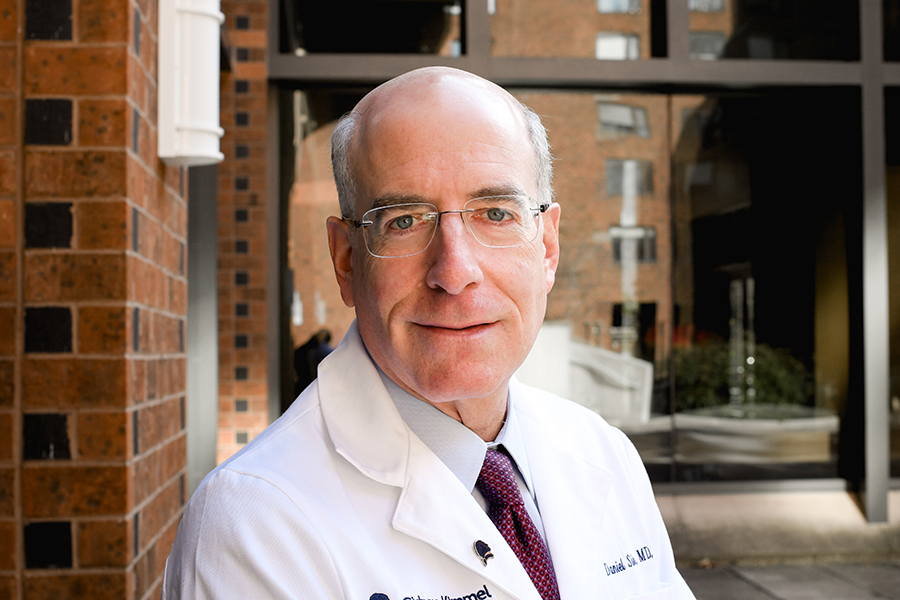Ask The Expert: Dr. Daniel Silver Breaks Down the Future of Breast Cancer Treatment
![header image]() What inspired you to study medicine?
What inspired you to study medicine?
While I was in college, recombinant DNA technology was just coming into existence and allowed amazing molecular insight into biological problems in a way that had not been possible. It occurred to me that this would lead to rapid progress in medicine. I had also always been interested in cancer because it’s clearly an area where progress was sorely needed.
Why did you choose breast cancer as your focus?
The BRCA1 and 2 genes were identified when I was finishing my clinical training. I saw this breakthrough as an opportunity to understand the molecular changes that cause breast cancer and, as a result, to create better therapies. Since then I’ve been very involved in research that is investigating the basic wiring of cancer—what makes certain cancers grow and how that can lead to new treatments.
Has there been progress in the fight against breast cancer?
Absolutely. Over the last 30 years, the mortality rate after breast cancer diagnosis has dropped by 40 percent. That’s clearly encouraging, but make no mistake, the goal is for no deaths from breast cancer. We’ll get there through better screening tests, earlier detection and better treatments. One exciting development has been immunotherapy, a treatment that harnesses the body’s own immune system to fight cancer. This is successful in only a small percentage of breast cancer patients so far, but we’re working hard to increase that. Another promising development is targeted therapy; as we understand more about vulnerabilities of each individual tumor, we’re developing more precise therapies.
How do you support patients after treatment?
Our patients get detailed survivorship plans that cover ongoing surveillance for cancer recurrence, guidelines for healthy living and support services. We have an extensive team, including nurse navigators, social workers, genetic counselors and mental health professionals, who are all dedicated to the unique problems of cancer survivors.
How do you relax outside of work?
I learned how to windsurf about 25 years ago and love being out on the water with just the wind and a small windsurfer. It’s a physical and mental challenge, yet it can be so peaceful. And I’ve seen all sorts of amazing things while windsurfing: bald eagles fishing, ospreys carrying away fish and bluefish feeding in a pack.
This post was produced and paid for by Jefferson Health What inspired you to study medicine?
What inspired you to study medicine?